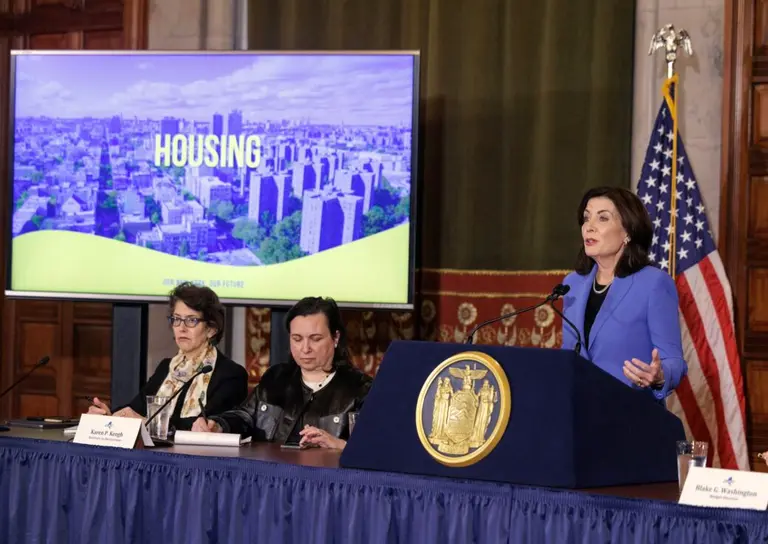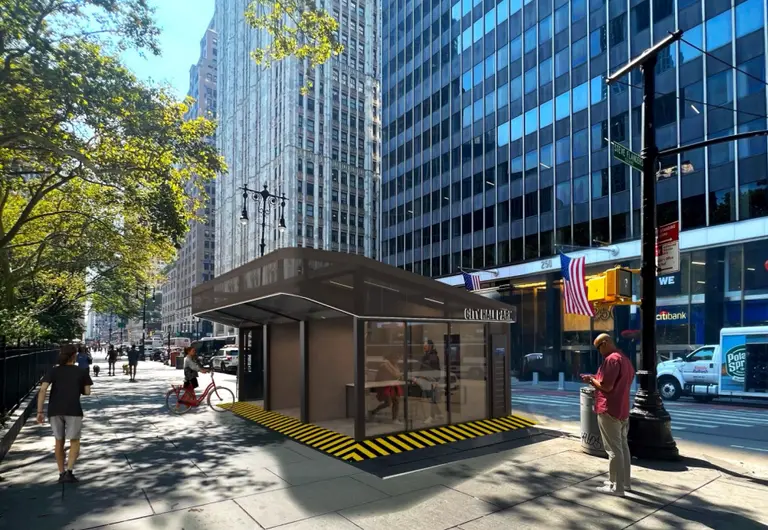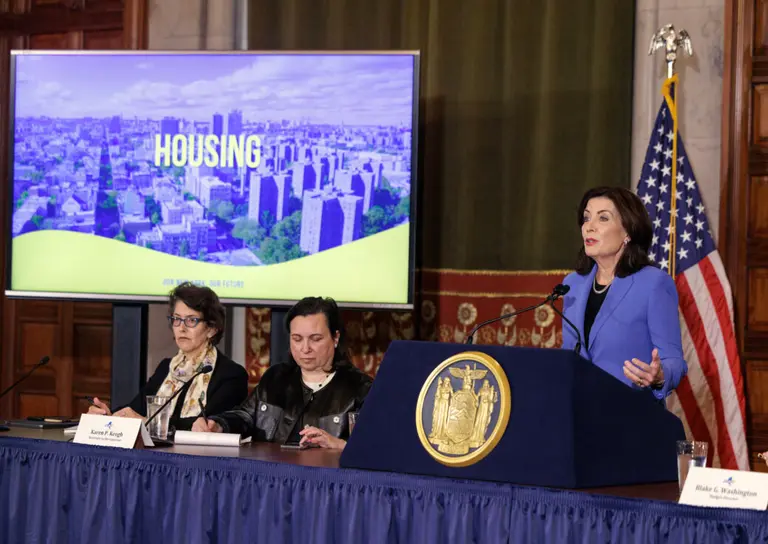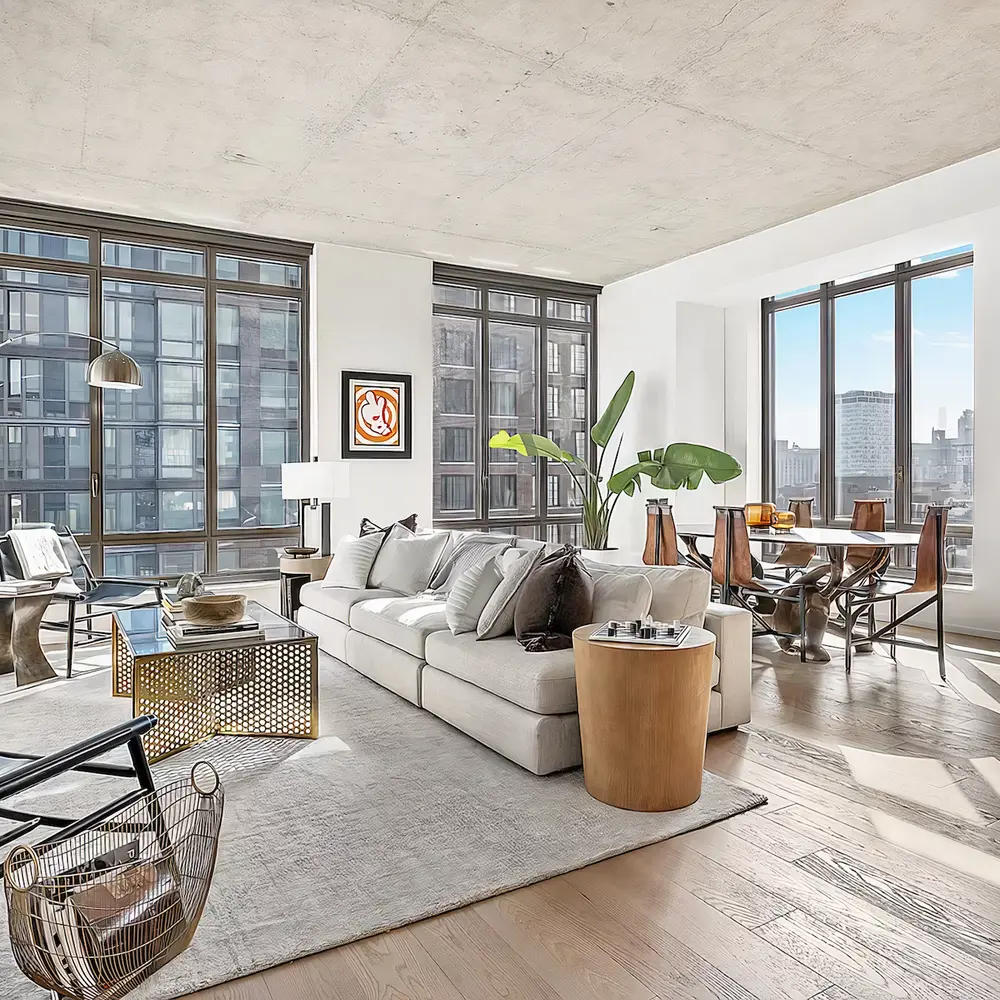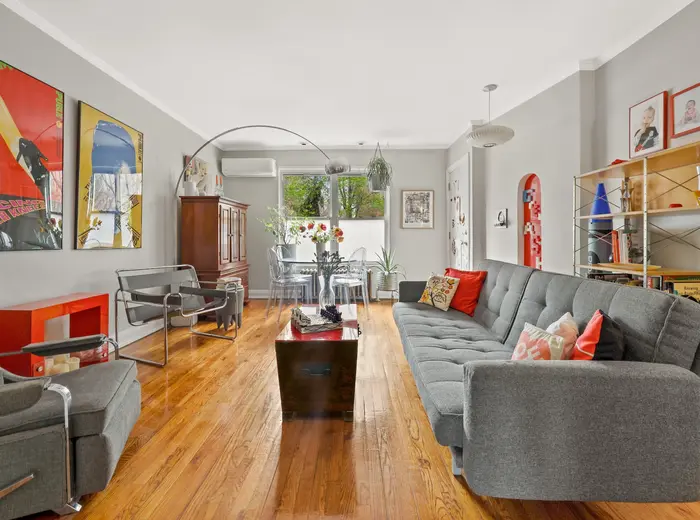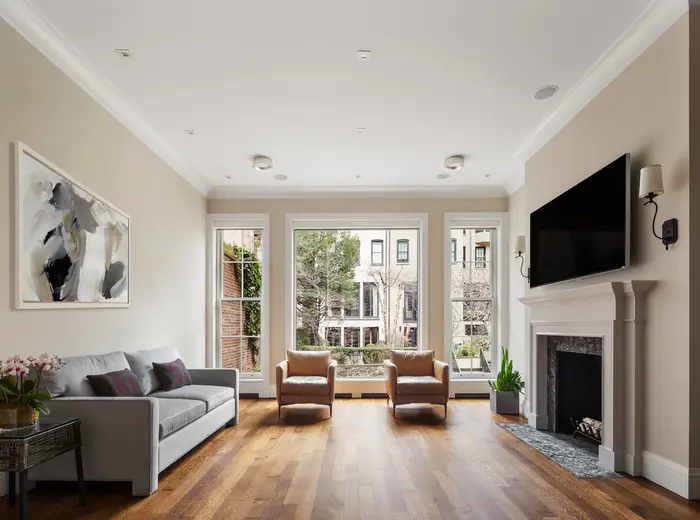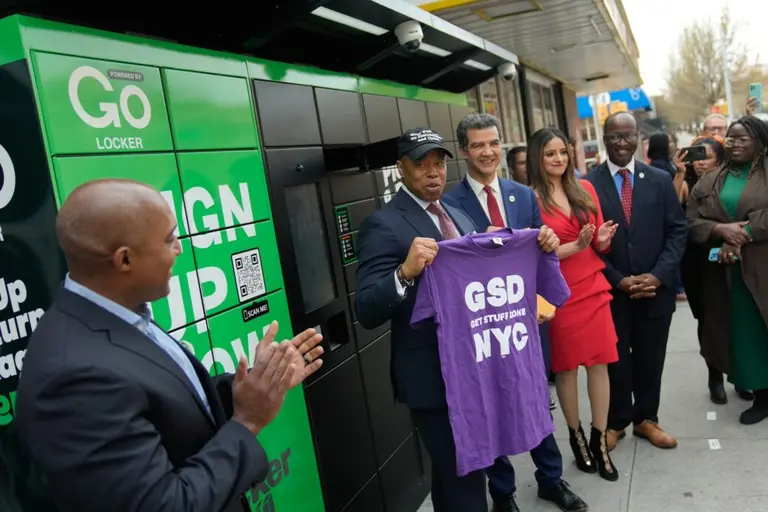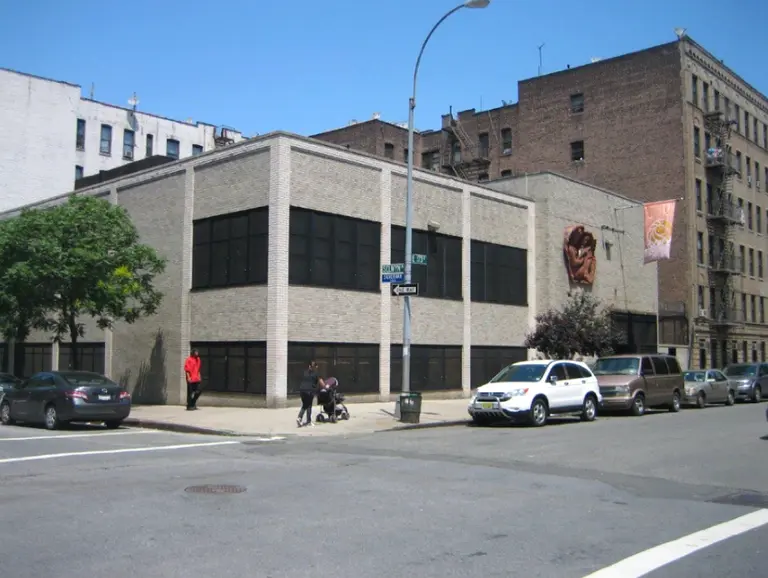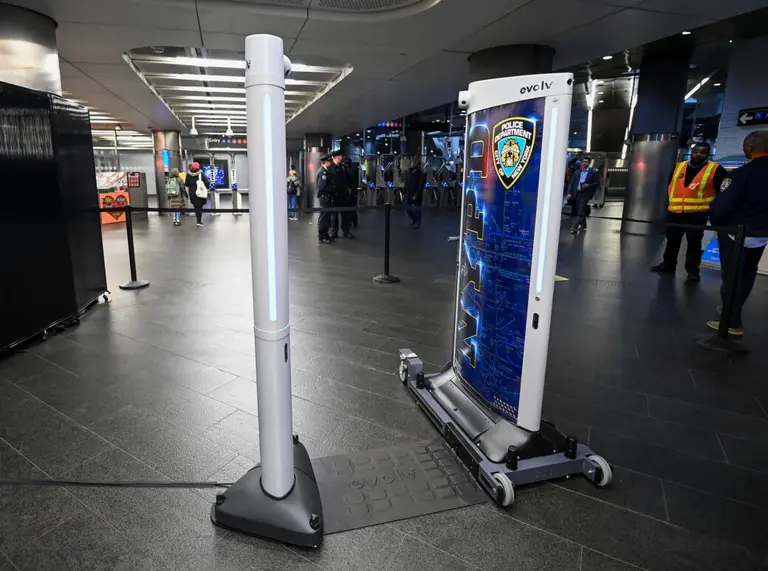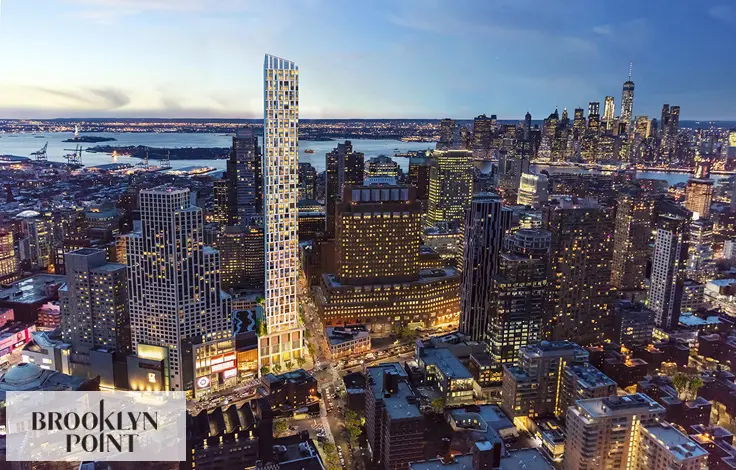Rent increase between 2% and 5% likely for NYC’s stabilized apartments
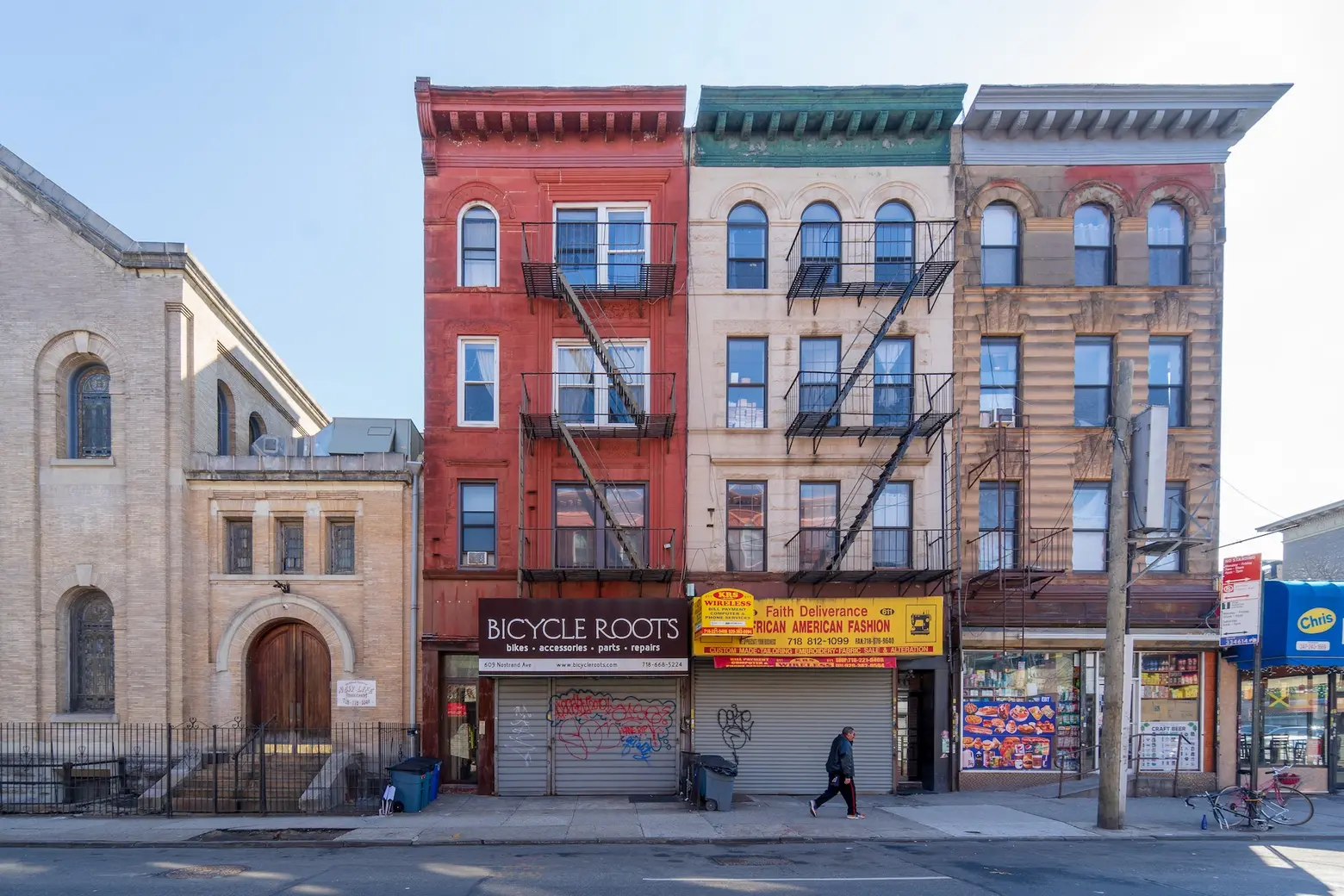
The roughly two million New Yorkers who live in rent-stabilized apartments will likely see rents go up by the largest percentage in 10 years. In a preliminary vote on Tuesday, the Rent Guidelines Board, a nine-member panel responsible for adjusting the cost of rent for stabilized apartments, approved increases on one-year leases between 2 and 5 percent and increases on two-year leases between 4 and 7 percent. A vote determining the final increases will take place in June; the board historically has adopted rent hike proposals that fall within the preliminary range.
The expected rent hike, which affects leases signed after October 1, is the second significant increase in two years for the city’s one million rent-stabilized apartments. Last year, the board voted to approve a 3.25 percent increase for one-year leases and a 5 percent increase for two-year leases, which marked the first major increase since former Mayor Michael Bloomberg’s administration.
In 2021, the board adopted a proposal that did not increase rents for six months followed by an increase of 1.5 percent for the next six months. At the height of the pandemic in 2020, the board voted to freeze rent for one-year leases and for the first year of two-year leases.
Earlier proposals adopted included a 1.5 percent increase on one-year leases and a 2.5 percent increase on two-year leases in 2019. Rent freezes were also issued in 2015 and 2016.
Appointed by the mayor, Rent Guidelines Board members include two representatives for landlords and two for tenants, with the remaining members representing the public. The board looks at a variety of factors to determine the annual increases, including landlord operating costs, inflation, eviction rates, employment rates, and affordability.
According to a report released by the board earlier this year, landlords had higher costs due to an increase in fuel, insurance, and maintenance costs.
But the board also found that a majority of rent-stabilized tenants paid roughly one-third or more of their entire income on rent in 2022; those who spend more than 30 percent of their income on rent are considered rent burdened, according to federal guidelines.
The possible rent hikes also come as half of New York City households are struggling to pay for basic needs. A report released last month by the Fund for the City of New York found about 50 percent of working households can’t afford essential expenses like rent, health care, food, and transportation, up from 36 percent in 2021.
According to the New York Times, Tuesday’s board meeting was disrupted by tenant advocates and public officials protesting the proposed rent increases. In a statement City Council Speaker Adrienne Adams said while it’s “relieving” the board did not approve the 16% increase previously debated, most New Yorkers still cannot afford the preliminary ranges.
“At a time when the City faces a housing crisis and affordability remains out of reach for too many, the board must recognize the immense economic strains that these rent increases would have on tenants,” Adams said in a statement. “As a City, we must equitably address our housing shortage and provide relief for all New Yorkers, including through the preservation of existing affordable units.”
Mayor Eric Adams also released a statement following the preliminary vote that called the 7 percent increase “beyond what renters can afford and what I feel is appropriate this year.”
“I recognize that property owners face growing challenges maintaining their buildings and accessing financing to make repairs; at the same time, we simply cannot put tenants in a position where they can’t afford to make rent,” the mayor said.
“Members of the RGB are tasked with making independent decisions based on all available data. However, I hope they will look at options below the top of these preliminary ranges to strike the right balance to keep New Yorkers in their homes while providing building owners with the resources they need to provide safe, high-quality homes.”
RELATED:
